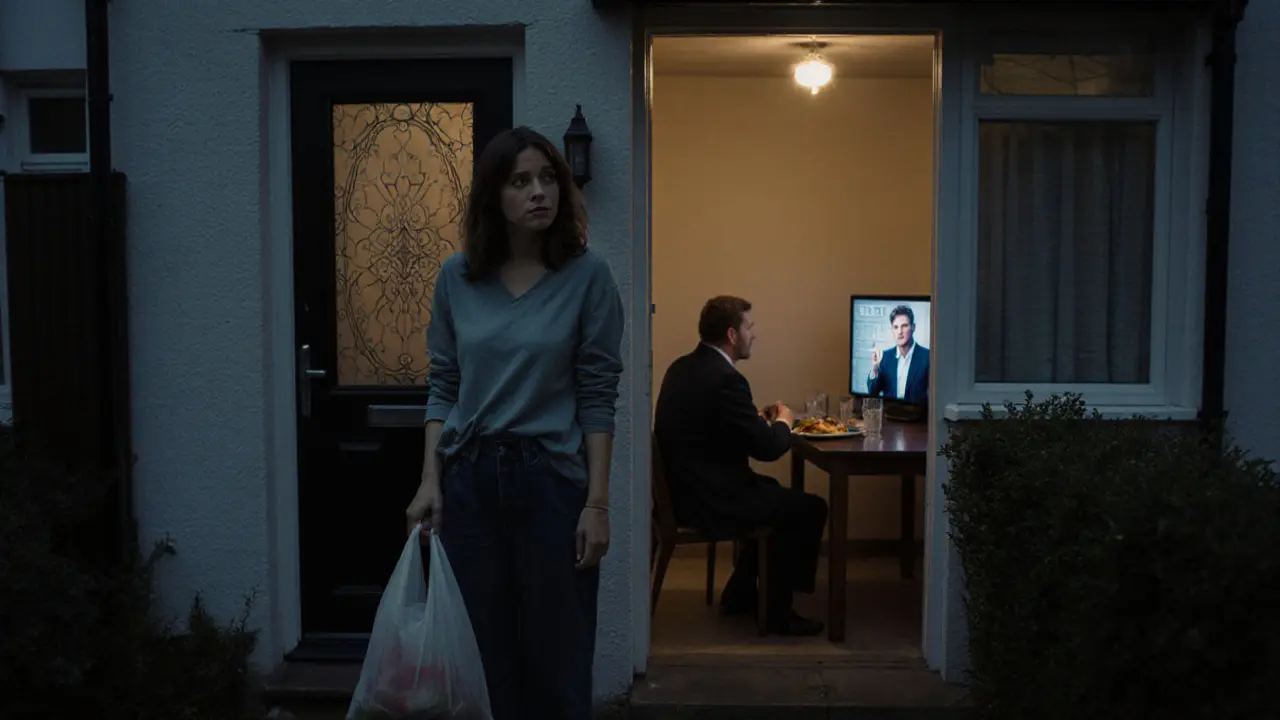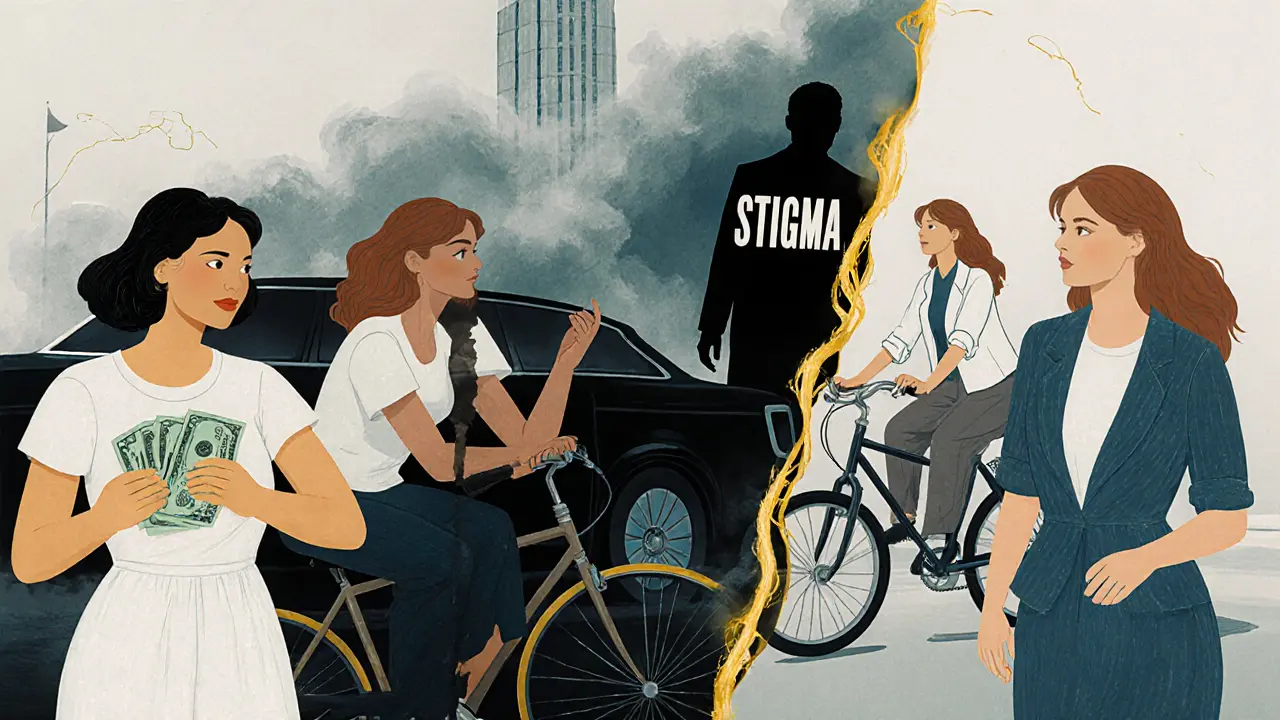Most people think of London escorts as glamorous, high-end, and mysterious. The truth? It’s messy, exhausting, and rarely looks like the movies. I worked as an independent escort in London for five years. Not because I wanted to be rich or famous, but because I needed to pay rent, student loans, and keep my mom’s health insurance covered after she lost her job. This isn’t a tale of luxury cars and champagne. It’s about survival, boundaries, and the quiet moments no one talks about.
How I Got Started
I didn’t wake up one day and decide to become an escort. I was 24, working two part-time jobs-one at a coffee shop, another answering phones for a legal firm. I made £1,800 a month. Rent in South London was £1,200. My student loan payment was £250. After bills, I had £350 left for food, transport, and emergencies. When my car broke down, I couldn’t afford to fix it. That’s when I started looking online. I found a forum for independent escorts. Not the flashy agencies with photoshoots and PR teams. Real women, mostly in their 20s and 30s, sharing tips on screening clients, setting rates, and staying safe. One post said: "You’re not selling sex. You’re selling time, attention, and control." That stuck with me. I started with £40 an hour. No photos. No website. Just a basic profile on a discreet platform. My first client was a retired teacher from Wimbledon. He paid in cash. We talked about books for two hours. He left without touching me. I made £40. I cried in the shower after he left-not from shame, but because I’d never felt so seen.The Reality Behind the Scenes
Most clients aren’t what you expect. I met doctors, teachers, engineers, even a few politicians. Some were lonely. Others were grieving. A few just wanted someone to listen. I had a client who came every Tuesday for six months. He never asked for sex. He just needed someone to sit with him while he ate dinner. I brought my own food. We watched old episodes of Doctor Who. He called me his "quiet friend." Then there were the ones who made me uncomfortable. The man who brought his own restraints. The guy who asked me to pretend I was his ex-wife. The one who cried and begged me not to leave after I finished. I learned to say no. Not just "no," but "I’m not doing that, and I won’t be back." I kept a list of red flags: demands for photos, pressure to drink, refusal to use protection, asking for personal info. If any of those came up, I canceled. No guilt. No apology. I never worked on weekends. Saturdays and Sundays were mine. I slept. I cooked. I saw friends. I went to the cinema alone. I didn’t owe anyone my time. That was the rule I held onto tighter than anything else.Money, Taxes, and the Hidden Costs
I made between £3,000 and £5,000 a month. That sounds like a lot. But here’s what it didn’t cover:- £80 a week for laundry (every client changed the sheets)
- £120 for cleaning supplies (disinfectant, air fresheners, new towels)
- £200 for car maintenance (I used Uber to get to appointments-no one knew where I lived)
- £150 for security software (encrypted messaging, burner phones, fake addresses)
- £300 for therapy (I needed it)

The Stigma That Never Goes Away
I told my mom I was doing freelance graphic design. She believed me. My friends thought I worked for a startup. I never corrected them. I didn’t want their pity. I didn’t want their judgment. I just wanted them to still see me as me. One night, after a client left, I got a message from an old university classmate: "I saw your name on a website. Is that you?" I didn’t reply. I blocked her. I didn’t hate her. I just couldn’t handle the weight of being seen as something I wasn’t. I stopped working after my mom got better. I got a job at a nonprofit helping women leave abusive relationships. I still get looks sometimes. People assume things. I don’t correct them. I don’t need to. I know who I am.What No One Tells You
If you think being an escort is about sex, you’re wrong. It’s about emotional labor. It’s about reading a room. It’s about knowing when to speak and when to stay quiet. It’s about setting boundaries so hard they become unbreakable. The best part? I learned how to say no. To clients. To society. To the voices inside my head that told me I was less than. I learned that my worth wasn’t tied to what I did for money. It was tied to how I treated myself. I don’t miss the work. But I do miss the clarity it gave me. I knew exactly what I was worth. And I never let anyone tell me otherwise.
Why This Isn’t a Choice for Everyone
Let’s be clear: this isn’t a career path. It’s a survival tactic for people with no safety net. The women I worked with weren’t there because they loved the lifestyle. They were there because rent was due, medical bills were piling up, or they had no other options. Some were single moms. Some were fleeing domestic violence. One was a university student with a chronic illness who couldn’t hold a 9-to-5 job. The industry doesn’t care about your story. It only cares if you’re reliable, safe, and don’t cause trouble. That’s it. If you’re thinking about entering this world, here’s what you need to know:- Never work alone without a safety check-in system
- Always use a verified platform with client reviews
- Keep your real address, phone number, and identity separate
- Set your rates and stick to them
- Have a list of red flags and walk away immediately
- Get therapy. Seriously. This work changes you.
What Happens After?
I left the industry because I could. Not because I wanted to. I didn’t have a grand exit. I just stopped taking bookings. I didn’t post a farewell. I didn’t write a book. I just moved on. Some of the women I knew kept going. Others got into trafficking. One went to jail after a client reported her for not following his demands. Another disappeared. No one knows where she is. The system doesn’t protect people like us. The law treats us as criminals. The media paints us as villains or victims. No one asks what we need to survive. I don’t speak out to be a hero. I speak because someone else might be reading this right now, wondering if they’re alone. You’re not. And you don’t have to stay in this life forever.Is being an escort legal in London?
Yes, selling sex is legal in the UK, but many related activities aren’t. Brothels (more than one person working from one location) are illegal. Soliciting in public places is illegal. Advertising escort services online is a gray area-many platforms ban it, but independent websites still exist. You can legally work alone from your own home, as long as you don’t run a business with others or solicit on the street.
How do escorts stay safe?
Safety comes from preparation. Use verified platforms with client reviews. Never give out your real address or phone number. Always have a friend check in before and after appointments. Record client details (name, contact, appointment time). Use a burner phone. Keep a list of red flags and trust your gut. Many escorts use panic buttons or apps that alert contacts if they don’t check in. Therapy and peer support groups are also critical for mental health.
Do escorts get paid well?
It depends. Independent escorts in London typically charge between £40 and £200 per hour, depending on experience, location, and demand. High-end agencies may charge £500+ per session, but they take 40-60% of earnings. After expenses-cleaning, laundry, transport, security software, taxes, therapy-many end up taking home £2,000-£4,000 a month. It’s not passive income. It’s hard, emotionally draining work.
Are all escorts exploited?
No. Some are. But many are not. The idea that every escort is a victim is a myth pushed by media and anti-prostitution groups. There are women who choose this work because it gives them flexibility, control, and income they can’t get elsewhere. Exploitation happens when someone is forced, coerced, or trapped-often by pimps, traffickers, or abusive agencies. Independent, self-managed escorts have far more control over their safety and conditions than people assume.
Can you leave the industry anytime?
Yes-if you have savings, support, and a plan. Many leave because they can’t afford to keep going. Others leave because the emotional toll becomes too heavy. The hardest part isn’t quitting-it’s rebuilding your identity. Society doesn’t make it easy. You might face judgment from family, friends, or future employers. Having a therapist, a support group, or a mentor who’s been through it helps. Some former escorts go into advocacy, counseling, or social work. Others just want to disappear-and that’s okay too.
